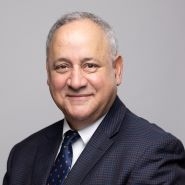TTAB Affirms Section 2(d) Refusal of LEGION OF GOOD WILL in Light of Prior GOODWILL Marks
- August 15, 2018
- Article
Associated People
Associated Practices
TTAB Affirms Section 2(d) refusal of LEGION OF GOOD WILL in light of prior GOODWILL marks.
The Trademark Trial and Appeal Board affirmed the refusal of LEGION OF GOOD WILL for charitable services in light of several of Goodwill Industries’ prior registered GOODWILL Marks. In re Legion of Good Will aka LGW, Serial No. 87164803 (TTAB Aug. 10, 2018).
Applicant sought to register LEGION OF GOOD WILL for charitable services to assist the underprivileged and impoverished in Class 35 and educational services in the nature of early childhood instruction in International Class 41. The examiner refused under Section 2(d) in light of several of Goodwill Industries’ prior registered GOODWILL Marks, including U.S. Reg. 5,010,715 covering, among other things:
Charitable services, namely, accepting charitable donations of a wide variety of goods for resale to the public, for purposes of providing education, training, career, and other personal opportunities and services to benefit people with disabilities and disadvantaging conditions;
Charitable services, namely, organizing and conducting volunteer programs, in International Class 35; and
Child and adult day care services, in International Class 43.
In affirming the refusal, the Board focused on U.S. Reg. 5,010,715 because if a likelihood of confusion were found, it would not be necessary to consider the other seven registrations owned by Goodwill Industries.
Turning to the likelihood of confusion analysis applying the du Pont factors, the Board found that the cited GOODWILL mark is suggestive of the benevolent nature of the services, was registered without a requirement to prove acquired distinctiveness, was entitled to the presumption of validity, and should be accorded the normal scope of protection to which suggestive marks are entitled. Id., Slip op. at 9. The Board found LEGION OF GOOD WILL and GOODWILL to be similar in appearance, sound, connotation and meaning, and overall commercial impression, thereby finding that the first du Pont factor favored a finding that confusion is likely. Id., Slip op. at 10.
The Board found the services to be identical in party because the registrant’s charitable activities and volunteer services are encompassed by applicant’s projects intended to benefit the underprivileged and impoverished. It further found that Applicant’s Class 41 educational services were related to registrant’s Class 43 child day care services based on third party web sites and third party registrations covering both types of services. This evidence “demonstrates that consumers would readily expect that these services likely emanate from the same source.” Id., Slip op. at 15.
Likewise, the trade channels were found to be overlapping because there are no restrictions on the parties’ Class 35 services, which are presumed to travel in the same channels of trade to the same purchasers, and applicant’s Class 41 services and registrant’s Class 43 services were shown by third party evidence to overlap, and the lack of restrictions in the identification of these services gives rise to the same presumption that the trade channels and purchasers overlap. Id., Slip op. at 15-16. Accordingly, the Board found that the relatedness of the services, channels of trade and consumers weigh in favor of likelihood of confusion.
The Board rejected applicant’s argument that the absence of actual confusion during the parties’ 35 years of coexistence suggested no likelihood of confusion finding it of little probative value because “the Board cannot readily determine whether there has been a significant opportunity for actual confusion to have occurred, such that the absence of confusion is meaningful.” Id., Slip op. at 17. In contrast to other ex parte cases, the record reveals no “confluence of facts” which together strongly suggest that the absence of confusion was meaningful and should be given probative weight.” Id. Section 2(d) requires a likelihood of confusion, not actual confusion, so this factor was found to be neutral. Id.
Weighing all of these factors and findings, the Board found no likelihood of confusion and affirmed the refusal to register LEGION OF GOOD WILL.
The Board also affirmed the refusal under Sections 1 and 45 for failing to submit sufficient evidence of actual use of the mark in commerce because Applicant’s substitute specimens, although otherwise adequate, were not verified as required by Trademark Rule 2.20, 37 C.F.R. § 2.20. Slip op. at 19-20.
Recent Publications
5 IP Rules to Know to Protect Your Business in the United States (article in French)
Coaching INPI Newsletter










 Counseling & Strategic Advice
Counseling & Strategic Advice IP Transactions
IP Transactions Litigation
Litigation PTAB Proceedings
PTAB Proceedings Start-Up
Start-Up Technology Transfer
Technology Transfer Trademark & Designs
Trademark & Designs U.S. Patent Procurement (Application Drafting & Prosecution)
U.S. Patent Procurement (Application Drafting & Prosecution)








